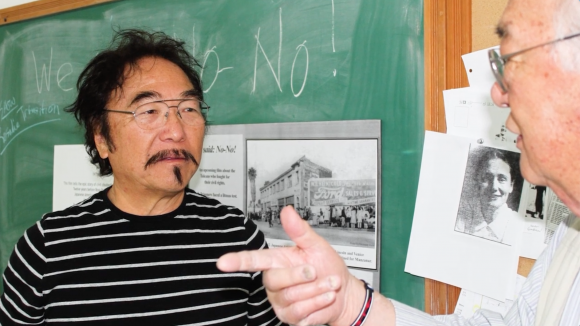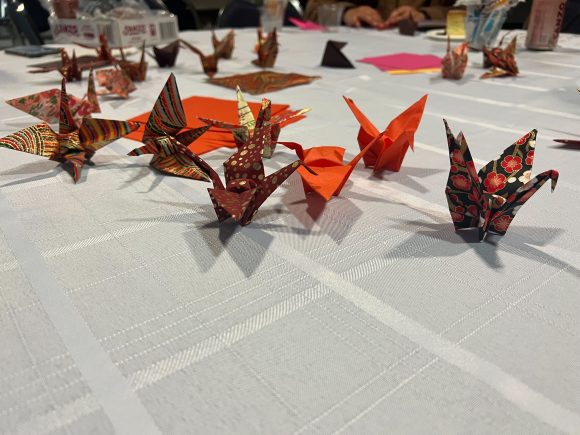Towards Collective Memory: Documenting Resistance
March 10, 2023
On February 21st, Wilkinson College of Arts, Humanities, and Social Sciences observed the Day of Remembrance for Japanese American internment and the signing of executive order 9066 with a showing of We Said No! No!: A Story of Civil Disobedience, a documentary directed by Brian Tadashi Maeda. The screening was followed by a panel discussion with Maeda, Dr. Stephanie Takaragawa (Associate Professor of Sociology), and Dr. Robert Lemelson (UCLA Anthropologist). Included were Japanese-style refreshments and a small workshop creating origami-paper cranes.
During the panel, Maeda spoke about the significance of the film which tells the story of Japanese Americans classified as “disloyals” who were forcibly interned at Camp Tule Lake in Northern California.
“I was drawn to tell this particular story, this particular history, because we so rarely hear about Tule Lake and the Japanese Americans who decided to respond “no” and “no” to the infamous loyalty questionnaire,” said Maeda.
Maeda richly explores the impossible situation the U.S. Government created for Japanese Americans, the ways in which those at Tule Lake organized and created community within the walls of the camp, and the significance of their protests and civil disobedience in the face of profound injustice. The film recognizes and honors the diverse experiences and multiple histories of Japanese American internment.
The so-called “disloyals” or the “No No Boys” created ingenious survival strategies. As they faced circumstances not of their own making and harsh conditions designed to strip away their humanity and dignity, in their absolute refusal, they affirmed their identity, their heritage, and their community and created space for self-determination and agency.
Maeda also engaged with this story personally as someone who was born in Manzanar during World War II, one of ten American concentration camps.
“Rosalie Wax’s anthropology book, Doing Fieldwork, based on her work as a visiting anthropologist at Tule Lake, provided meaningful insight for me and my family’s experience in the internment camps,” he said.
The history of Japanese American internment is one that should not be forgotten. As we hold that, we are challenged to hold space for the multiple aspects of this history that are less told, less held, and less remembered.
Watch the documentary trailer below.



